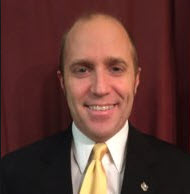June 19, 2016 / by Ryan Essenburg Estimated read time: 3 minutes
The Importance of Source Files for Localization

I wrote about the importance of providing source files in my previous blog if you need an accurate quote and schedule for your upcoming localization project.
It becomes even more important that your language service provider (LSP) gets the correct files once we place your content into any of the industry's Translation Memory Systems (TMS), including TRADOS, WorldServer, Catalyst, Passolo, Smartling, Across Language Server, etc.
These tools build a translation memory (TM) and memorize the translator's translation for each source language segment (sentence, clause, graphic callout, software string etc.). Then, when the same segment of text comes up again in an update, future product release, or another project component, the translator is prompted with the existing translation and may reuse it.
Three important facts about using Translation Memory Systems that you need to know:
- Saves money. You will pay a discounted word rate for the leveraged content.
- Decreases time. The tools also save time as translators are presented with the “already translated segment” and they only need to review/edit.
- Increases consistency. Once a term or phrase has been translated and approved, it gets reused across your entire product, increasing consistency across software, help, documentation, and even marketing.
While it would seem natural that any LSP likes to handle "final" files, there is an inherent risk to labeling files as "final" because our experience shows that files sometimes need to be updated again as soon as they are labeled as final.
Localization is particularly prone to false "final" documents. We in the industry understand that files will constantly be changing and evolving over the course of a project life cycle.
That is absolutely fine. However, the more “final” the final files are at the time of analysis, the more accurate the cost and the schedule calculations will be, and trust me the better your working life will be too (less change orders to deal with).

Written by Ryan Essenburg
Ryan serves as Business Development Director at SimulTrans, currently focusing on new business activity from global headquarters in Mountain View, CA. He has been at SimulTrans for over 19 years and is one of our most senior and accomplished Account Managers.



